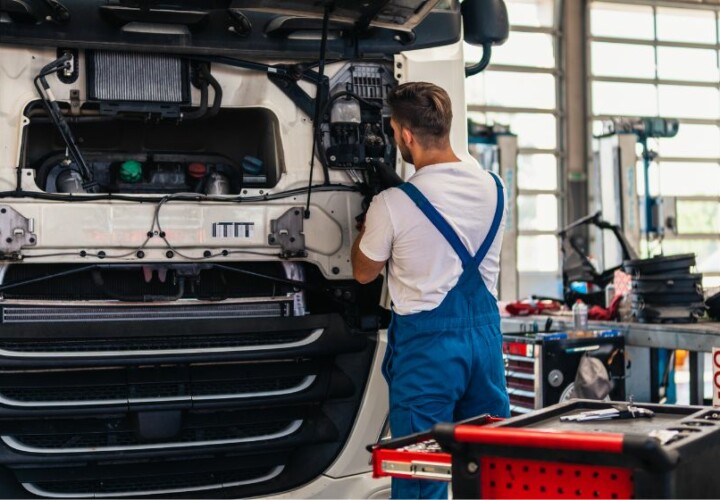Introduction
The shortage of highly skilled Heavy Goods Vehicle (HGV) mechanics has become a growing concern for the transportation industry, posing significant challenges to supply chains’ efficiency and safety.
The demand for competent HGV mechanics has outpaced the availability of qualified professionals, creating a skills gap that threatens the smooth operation of logistics and transportation networks. In this blog post, we will explore the causes and consequences of this shortage and discuss potential solutions to address this pressing issue.
The Growing Problem
Several factors have contributed to the shortage of HGV mechanics. The rapid expansion of the logistics industry – coupled with a surge in e-commerce and the demand for next-day delivery – has led to an increased need for HGVs and, consequently, more maintenance and repairs. Unfortunately, the supply of skilled mechanics has not kept pace with this rising demand, resulting in an ever-widening skills gap.
Implications for Supply Chains
The shortage of HGV mechanics has significant implications for supply chains’ efficiency and safety. Delayed repairs and maintenance can lead to increased downtime for vehicles, hampering the timely delivery of goods. Unaddressed mechanical issues may also compromise the safety of both drivers and other road users, potentially resulting in accidents or breakdowns. Furthermore, inefficient supply chains may incur higher costs due to increased repair expenses, vehicle replacements, and penalties for missed delivery deadlines.
Causes of the Shortage
Multiple factors contribute to the shortage of HGV mechanics. Firstly, limited training opportunities and a lack of awareness about the career prospects in this field have discouraged individuals from pursuing a career as an HGV mechanic. Additionally, the aging workforce and lack of succession planning within the industry have resulted in a significant gap between retiring mechanics and newly qualified professionals.
Training and Education Initiatives
Efforts are being made to address the shortage of HGV mechanics through training and education initiatives. Recognising the need for skilled professionals, industry organisations and educational institutions are collaborating to develop comprehensive training programs. These initiatives focus on attracting young talent, providing specialised training courses, and offering apprenticeships or work placement opportunities. The training programs aim to equip aspiring HGV mechanics with the necessary skills to meet the industry’s evolving demands.
Government and Industry Collaboration
To tackle the shortage effectively, collaboration between the government and industry is crucial. Government support in the form of funding and incentives can encourage educational institutions to develop and expand HGV mechanic training programs. Additionally, partnerships between industry stakeholders and training providers can help tailor the curriculum to match the industry’s specific requirements.
Retaining and Upskilling Existing Mechanics
Retaining and upskilling existing mechanics is another vital aspect of addressing the shortage. Organisations should invest in ongoing professional development programs, offering opportunities for mechanics to enhance their skills and stay updated with the latest technologies. Creating a positive work environment, providing competitive wages, and offering career advancement prospects can also contribute to retaining and attracting skilled HGV mechanics.
Conclusion
There’s no question that the shortage of HGV mechanics poses significant challenges to supply chains’ efficiency and safety but to successfully address the issue a multi-faceted approach is needed. This includes attracting new talent, providing comprehensive training programs, fostering industry-government collaboration, and retaining and upskilling existing mechanics.
By investing in the development of a skilled workforce, the transportation industry can overcome the shortage of HGV mechanics and ensure the smooth functioning of supply chains, ultimately benefiting both businesses and consumers.




